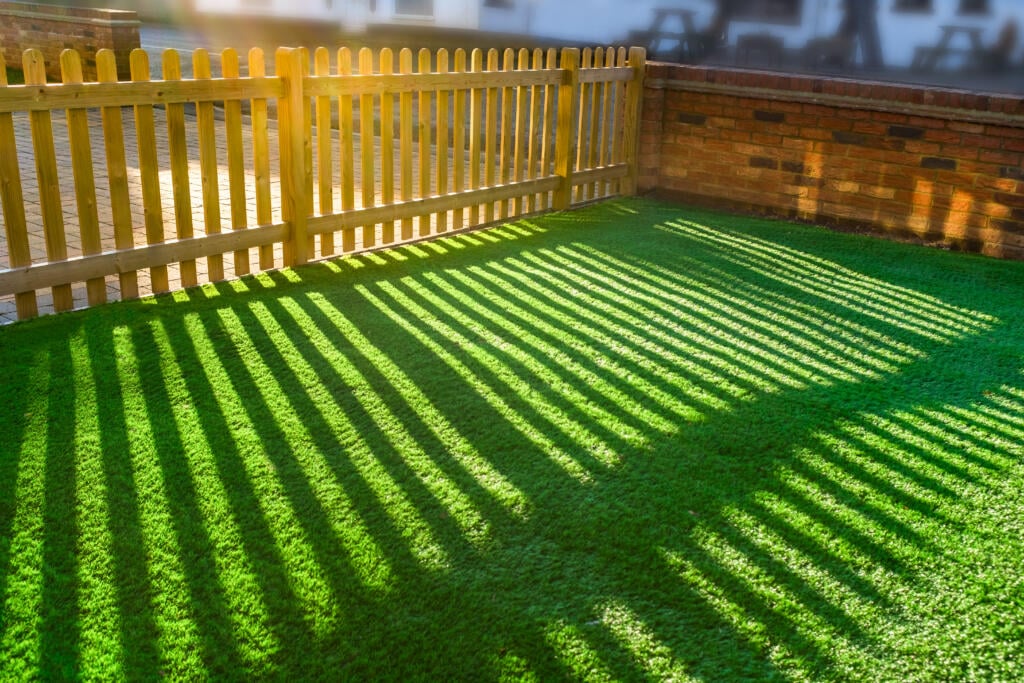
Is a dishwasher or washing by hand cheaper? We do the sums
Camilla Sharman
We compare baths and showers – on cost, hygiene, ease of cleaning, and more.
Do you favour a long relaxing soak in the tub or a quick refreshing spritz under a shower? People often have a strong opinion in the bath vs shower debate – but is there really a best option?
At a time when we are all looking for ways to save money on our energy and water bills, deciding whether to take a bath or a shower can affect what we pay.
Do you favour a long relaxing soak in the tub or a quick refreshing spritz under a shower? People often have a strong opinion in the bath vs shower debate – but is there really a best option?
At a time when we are all looking for ways to save money on our energy and water bills, deciding whether to take a bath or a shower can affect what we pay.
 Credit: Mira
Credit: MiraA common misconception is that showers use less water and are cheaper – but often this isn’t the case. We compare the costs of taking a bath vs a shower, as well as how they compare for other benefits.
An average bathtub will hold about 180 litres (60 gallons) of water, although when we take a bath, we only tend to fill it to the top if we’ve accidentally left the taps running! On average, we use about 80 litres (18 gallons) of water when we take a bath, according to Waterwise, an independent, not-for-profit organisation promoting water efficiency and conservation.
When taking a shower, the amount of water we consume depends on the shower type, but either way, an “average” 10-minute shower uses more than a bath. A traditional shower will uses 12 litres (21 pints) of water a minute, while a power shower uses 15 litres (26 pints) a minute.
Bath water usage
80 litres (18 gallons)
Standard mixer shower water usage
120 litres (26 gallons)
Power shower water usage
150 litres (33 gallons)
Shower figures based on a 10-minute shower. Figures taken from Waterwise
Top tip: turn off the water earlier
Whether we take a bath or a shower, there are simple ways to reduce water use. The Consumer Council for Water advises that reducing the height of a bath by 2.5cm (1 inch) of water will save, on average, five litres (nine pints). Cutting a 12-minute shower in half will save 60 litres (13 gallons) of water.
 Credit: Shutterstock/Ekaterina Vidiasova
Credit: Shutterstock/Ekaterina VidiasovaThe price you pay for your water will depend on your regional water supplier and whether you have a metered or unmetered supply. If you have a water meter, the more water you use, the more you’ll have to pay. And with personal bathing making up 33% of our overall water usage, the amount you use when taking baths and showers will have a big impact on your bill.
To calculate the costs, we took the amount of water used in litres, converted it to cubic metres (by dividing by 1000), and then multiplied by £2.10 – the amount Anglian Water charges standard metered customers for each cubic metre of water in 2024/2025.
The price you pay will depend on your water supplier and whether you have a water meter, but this gives a good indication of the difference in cost.
Bath water costs
80 litres (18 gallons) = £0.17
Mixer shower water costs
120 litres (26 gallons) = £0.25
Power showers use even more water – up to 150 litres (33 gallons) – which costs £0.31
In the case of most baths, the water is heated by a boiler. This is also true of standard mixer showers. In these cases, our calculations are based on heating the water from 10°C (50°F) to a comfortable 40°C (104°F), a few degrees above normal body temperature, using a gas boiler. This works out at 0.03kWh (kilowatt-hour) of energy per litre.
Heating an 80-litre bath would therefore use 2.4kWh of energy and running a standard shower for 10 minutes (using 120 litres of water) would use 3.6kWh of energy. A power shower (using 150 litres of water) would use 4.5kWh of energy.
Under the current Energy Price Guarantee, the current cost of gas is capped at an average of 6.04p 10p per kWh (until 30 June 2024, although prices may fall before then. Rates vary by region and are higher if you don’t pay by direct debit or have a prepayment meter.)
However, we also need to take into account electric showers. Rather than use a boiler to heat water, an electric shower has a built-in element that heats up cold water from the mains. They are one of the most expensive appliances to run in the home, using between 7kW and 10.5kW. We’ll take 8.5kW as an average.
The Energy Price Guarantee for electricity is currently around £0.24 per kWh (again, there are regional variations). So to work out the cost to run 8.5kW shower for ten minutes, we divide by 60 minutes and then multiply by 10 to get the energy used in kWh, then multiply by 0.34.
Bath heating costs
£0.14 (2.4kWh x £0.06)
Mixer shower heating costs
£0.22 (3.6kWh x £0.06)
Power shower heating costs
£0.27 (4.5kWh x £0.06)
Electric shower heating costs
£0.34 (1.42kWh x £0.24)
 Credit: Mira
Credit: MiraThink before you power–up
If you’re in the market for a new shower, it’s worth being aware of the extra water and energy a power shower consumes.
Darren Stretch, product manager at Mira Showers, says: “In general, power showers use a higher flow rate of water, which means they consume more and will require more energy to heat the water. Therefore, the energy cost of running a power shower can be higher than taking a bath.”
Tip
Running the shower before you step beneath it wastes water, so try to get in as soon as possible. Also, fitting an aerated showerhead or flow restrictor will reduce the flow while keeping the pressure steady.
Baths and showers have unique benefits, but when it comes to hygiene, showers win hands down. In a bath we’re immersed in both soapy suds and our own dirt, but with a shower, the grease and grim run away with the constant stream of water.
What you gain from a bath or shower depends on what you’re looking for. If you want to feel energised and alert, ready to start the day, a short, sharp shower will awaken you. And depending on the size of your household and the number of bathrooms, showering is likely the quickest and most practical option.
However, if your muscles are tired and you’re hoping for a good night’s sleep, a long warm soak in the tub will help ease your tired body and prepare you for bed.
 Credit: Shutterstock/New Africa
Credit: Shutterstock/New AfricaHaving a permanently squeaky–clean bathroom is almost impossible unless you have a resident cleaning fairy. However, keeping the dirt at bay with regular cleaning and maintenance, whether cleaning a bath or shower, will help avoid more arduous cleaning challenges in the future.
Showers can be harder to clean, because you may get limescale build-up on the shower enclosure, or limescale or mildew on your shower curtain. Mira Showers recommends wiping down the enclosure regularly and using a shower spray to reduce cleaning time. Method’s daily shower spray prevents soap scum, dissolves mildew, hard water stains and lime stains, and is available for RRP £4.
However, if you need to blitz the limescale, Mira Showers has a handy guide to banish the unsightly, chalky deposits. Ventilating the bathroom regularly will help avoid mildew build-up, and you can try cleaning the shower curtain with diluted bleach, or a specialist cleaning product.
According to the Energy Saving Trust’s At Home with Water report, personal bathing is the largest single use of domestic water consumption. So, can we save water and still keep clean? The answer is an undoubted yes, we just need to change our behaviour – whether that’s taking a shorter shower, or switching to a bath.
 Credit: Mira
Credit: MiraDiscover water–efficient products for the bathroom
Check out the Unified Water Label website for great water-efficient products. The website is run by the Unified Water Label Association, which creates awareness of water and energy consumption in the home. The labelling system is based on a traffic light system similar to the energy label, so if you look for green you’ll get the most water-efficient products.
Total cost per bath
£0.31
Total cost per mixer shower
£0.47
Total cost per electric shower
£0.27
Total cost per power shower
£0.61*
Assuming your water use is metered.
*Plus a small amount of electricity use for the pump, which will vary according to your shower.
It’s easy to assume that taking a shower uses less water than filling up a bath, but unless your shower is brief, it’s not necessarily the case, as our calculations prove. If you’re a speedy showerer and are in and out within a few minutes, you’ll save compared with taking a bath.
However, if you enjoy the sensation of idling under a warm stream and the boost of a power shower, you’ll be spending more than on a bath. Not surprisingly, the cheaper option is better for the environment too.

Written by Camilla Sharman she/her
Published: Updated:
With her 30 years of experience, Camilla Sharman has covered a wide range of sectors within the business and consumer industries both as a feature, content, and freelance writer. As a business journalist, Camilla has researched articles for many different sectors from the jewellery industry to finance and tech, charities, and the arts. Whatever she’s covered, she enjoys delving deep and learning the ins and out of different topics, then conveying her research within engaging content that informs the reader.

Camilla Sharman

Camilla Sharman

Camilla Sharman

Lou Dearden